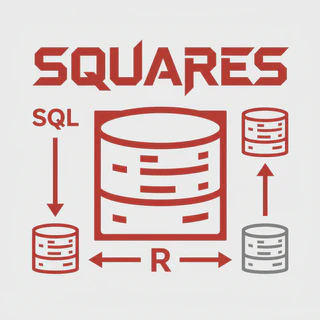Query Reverse Engineering
 Image credit: Perplexity AI
Image credit: Perplexity AIMany data analysts are domain experts but lack programming expertise. While they can describe what transformation they want to perform, they often struggle to express it in a query language such as SQL or R.
This creates a growing demand for systems that can address the challenge of Query Reverse Engineering (QRE), that is, given a database and an output table, automatically derive the query that produces that output.
SQUARES
In this project, we developed SQUARES, A SQL and R Synthesiser Using Query Reverse Engineering. SQUARES is a program synthesiser designed to help data analysts extract and transform data by automatically synthesising SQL queries and/or table manipulation programs in R.

SQUARES follows an enumeration-based synthesis approach, where, given a set of input and output tables, the system searches for the corresponding query that performs the desired transformation (input → output).
Importantly, SQUARES can output the discovered transformation both as SQL code and as R code, bridging the gap between database and data science workflows.
⚙️ Line-Based SMT Encoding
To efficiently explore the vast search space of possible programs, SQUARES employs a compact line-based encoding for Satisfiability Modulo Theories (SMT), introduced in our earlier work on line-based SMT encoding.
This encoding allows faster enumeration of candidate programs by representing the structure of SQL and R transformations as lines instead of representing each program as a single abstract syntax tree (AST).
Our experimental evaluations demonstrate that this encoding enables SQUARES to synthesise more queries and handle larger benchmarks than previous enumeration-based approaches, significantly improving both efficiency and scalability.
🌐 Try SQUARES
For more information about SQUARES, visit the project’s website, or try it out directly in an interactive environment:
SQUARES contributes toward democratising data access and transformation, allowing users without deep programming knowledge to derive complex queries automatically, and thus focus on their domain expertise rather than the intricacies of query syntax.
References
- (2019). Encodings for Enumeration-Based Program Synthesis. In CP 2019.
I am always excited to explore new ideas together! Feel free to reach out 📧 if you are interested in collaborating on these research topics.